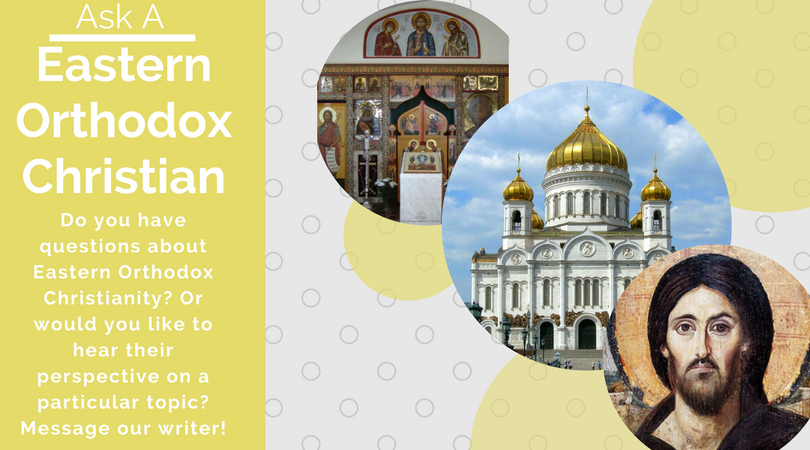Ask An Eastern Orthodox Christian: How Do I Join Your Church?
What would you like to know about the Eastern Orthodox Christian faith? Submit your question.
By Nicholas Damascus
How do I become an Orthodox Christian?
There is no formal catechism for an inquirer or seeker who desires to become a member of the Eastern Orthodox Church. However, this process to become a member of the EOC begins by contacting the priest of any Orthodox parish who will assist you in your inquiry. Should you decide to commit as a catechumen (one who plans to become a member of the church), your journey involves self-examination, counseling, and education of the faith, determining what is best for you and those in your life.
The Orthodox faith is not a religion; it is “a way of life” with guideposts to aid in each person’s life experiences. This journey that one has chosen is not so much a conversion process by the adoption of a different set of religious norms and beliefs, but rather a willing process of a personal transformation known to Orthodox Christians as theosis. This synergistic cooperative experience of becoming more like Christ, by His grace and mercy, is not easily understood by most non-Orthodox, yet it is so plainly evident.
We become more like Christ when we participate in the sacramental life of the Holy Spirit of God within the Church. We become “partakers of the divine nature” of God (2 Peter 1:4) and, through His divine energies of grace and mercy becoming “children of God” (John 1:12).
In Genesis 1:26 and 2 Corinthians 3:18 we are being transformed into the image (love) and likeness (holiness/righteousness) of God, growing and evolving in this process of theosis, that is, becoming ever more Christ-like. If we are not like God (Who is love), why would we want to be with Him? “He who does not love does not know God, for God is love” (1 John 4:8).
Catechumens are received into the Church by the Holy Sacraments of Baptism or Chrismation or both. Membership in the Orthodox Church is open to all persons.
Baptism is an outward sign of an inner belief, a profession of faith, the rite of passage, the dying of the worldly person, and the resurrection of a new person in union with Christ, opening the gateway to enter the Kingdom of God.
Chrismation is receiving the Seal of the Holy Spirit immediately following baptism, by the anointing of the newly illumined catechumen with this blessed oil. Any catechumen having been baptized in another recognized Christian faith does not have to be re-baptized and may enter the Church through the anointing of the Holy Sacrament of Chrismation.
A brief expression of our Orthodox faith could be understood not so much as a destination but more so as a journey of the fullness of Life. It’s a gift. Our goal is NOT to think that one would be good enough to score enough points to slide into heaven, but rather to allow the manifestation of the existence of Christ within us, for God became man so that man could become “god-like” (John 10:34 and Psalm 82:6).
We approach our relationship with Christ from a transition of worldly thinking of “being right” to “right being,” the reality of the eternal. Making an effort to understand and learn Christ’s real intention and purpose is a major step in our journey.
As Orthodox Christians, we believe in the profession of faith known as the Nicene Creed, established in the early ancient church when the church was one.








[…] MdND on 2021-10-24 Share on Social […]